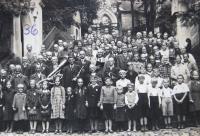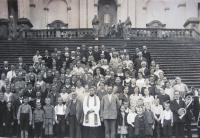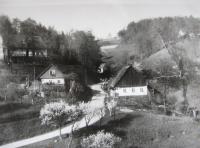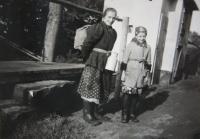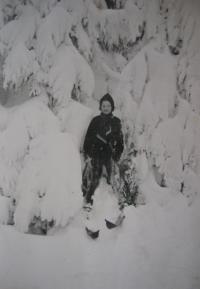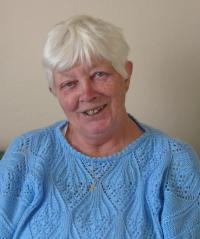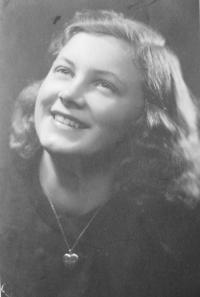I feel sorry for all people who have had to leave their homes

Download image
Barbora Páslerová was born in 1930 in Jakubovice, a small village in the former German, now Polish, region of Kłodzko. The village was part of the so-called Czech Corner, a Czech speaking enclave enclosed by Czechoslovak borders. As a schoolgirl, little Barbora was keenly aware of the influence of Nazi power seen in the disruptions of local customs and church-life. In 1939 her father was drafted to the wehrmacht. The family spent the war in the Kłodzko region, which was left relatively untouched. After the end of the war she, her mother and brother fled poverty and the threat of displacement to Czechoslovakia. They found their new home in Náchod. Klodzko had now belonged to Poland. Because of tense postwar relations between Czechoslovakia and Poland, they were forced to illegally cross the border, in order to visit relatives. They were reunited with their father in 1947.
